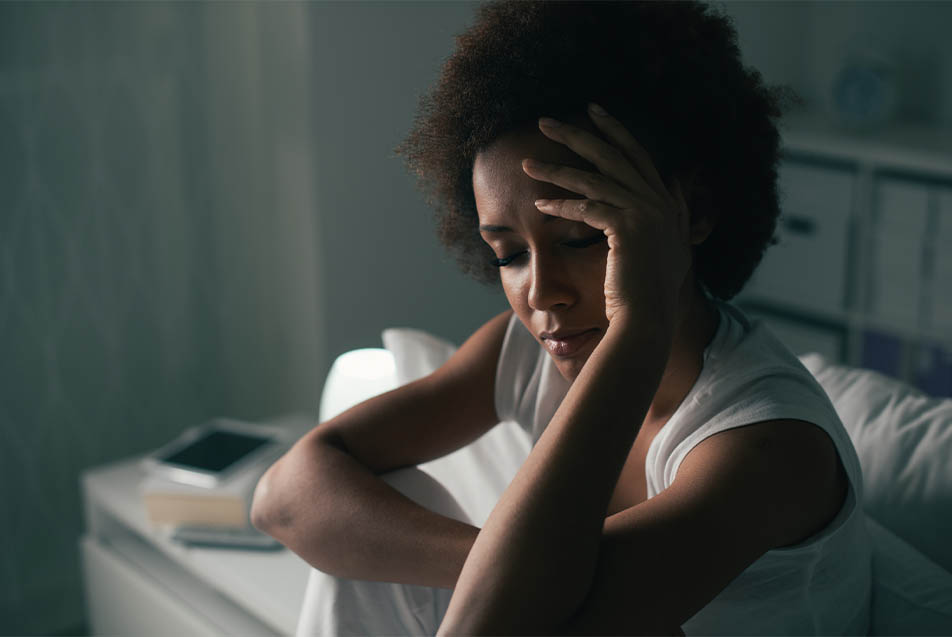
This post was written by Alexis Mann, PharmD, Parkview Health.
We all have those nights … the ones when, no matter how much we toss and turn, we just can’t fall asleep or stay asleep. We need sleep to maintain mental and physical health, prevent infection and improve quality of life. These tips and over-the-counter medications can be used to get some rest.
General tips for better sleep
Tip No. 1 – Create a comfortable and relaxing environment
At the very least, the room in which you are sleeping should be dark and cool with a comfortable mattress. Relaxing scents, a soft/plush comforter, or even rearranging the furniture can make the space even more supportive of rest. Make your bedroom a haven for sleep and rejuvenation.
Tip No. 2 – Maintain a regular sleep routine
It can be tempting to stay up late and sleep in on the days you don’t have to work or you’re on vacation, but the best thing to do if you find yourself having trouble sleeping is to maintain a set schedule. Consistency in when you go to bed and wake up will train the body to know when it should be sleeping.
The second part of maintaining a routine is to avoid taking naps. Taking naps reduces the level of “sleep deficit.” Even though this sounds like a good thing, it can lead to difficulty falling asleep later. Keeping a routine also includes the steps you take to get ready for bed. Repeating the same routine tells the brain to get ready for sleep.
Tip No. 3 – Do not watch TV, use the computer or read in bed
When we do “awake” activities in bed, the brain thinks being in bed means it’s time to be awake. If you are someone who has trouble sleeping, only using the bedroom for sleep can train the body to know that, when it is in bed, it is time to sleep. The blue light from electronics also triggers the production of hormones in the body that help keep us awake. Avoiding these can definitely help you fall asleep.
Tip No. 4 – Avoid caffeinated drinks, nicotine and alcohol
Caffeinated drinks in the afternoon and evening can keep you awake when you want to sleep. Nicotine stimulates the body and disrupts sleep. Alcohol, while it may help you fall asleep, can worsen the quality of sleep, and make it difficult to stay asleep. Don’t use alcohol as a sleep aid in any instance.
Tip No. 5 – Do not stay awake in bed for more than 20 minutes
If you find your mind racing or worrying about not being able to sleep during the middle of the night, get out of bed and sit in a chair in the dark. You can also go and do a relaxing activity outside of the bedroom. When you are once again sleepy, return to bed. Avoid television or electronic devices during this period.
Over-the-counter sleep aids
If you have tried lifestyle modifications but are still having trouble sleeping, there are some over-the-counter medications that may help. Here is a brief overview of some of the medications you can get from your local pharmacy.
Melatonin
What it is: Man-made version of the hormone (melatonin) in the body that regulates the sleep-wake cycle.
How to take it: Take the smallest possible dose (1-3mg tablet) 1 to 2 hours before your bedtime and slowly increase the dose each night (up to 5mg) if you are still having trouble sleeping.
Common side effects: Dizziness, headaches, drowsiness, nausea
Check with your doctor before taking if you take blood thinners, have depression, high blood pressure, or have a history of a transplant or seizures.
Doxylamine (Unisom®)
What it is: An antihistamine
How to take it: Take a 25mg tablet/capsule 30 minutes before bed. It is for short-term use: no more than 4 to 8 weeks.
Common side effects: Dry mouth, constipation, difficulty urinating, blurred vision, drowsiness
Do not use if you are 65 years and older or less than 12 years old, or have glaucoma, benign prostatic hyperplasia (BPH)/urinary obstruction, and/or COPD/emphysema.
Diphenhydramine (Benadryl®)
What it is: An antihistamine
How to take it: Take 25mg – 50mg 30 minutes before bed. It is for short-term use: no more than 4 to 8 weeks.
Common side effects: Dry mouth, constipation, difficulty urinating, blurred vision, drowsiness -can last into the morning
Do not use if you are 65 years and older or less than 12 years old, or have glaucoma, benign prostatic hyperplasia (BPH)/urinary obstruction, COPD/emphysema, and/or a thyroid disease.
Valerian
What it is: An herbal supplement that is likely safe and possibly effective as a sleep aid
How to take it: Take 300mg – 600mg at bedtime for up to 6 weeks. It could take up to 4 weeks to notice a benefit
Common side effects: Drowsiness and upset stomach
Do not start taking until you have talked with your doctor or pharmacist.
Sources
1. Sunni E. What is sleep hygiene? Sleep Foundation. Published March 11, 2022. Accessed March 23, 2022.
2. What is sleep & why is it important for health? American Sleep Association. Accessed March 23, 2022.



